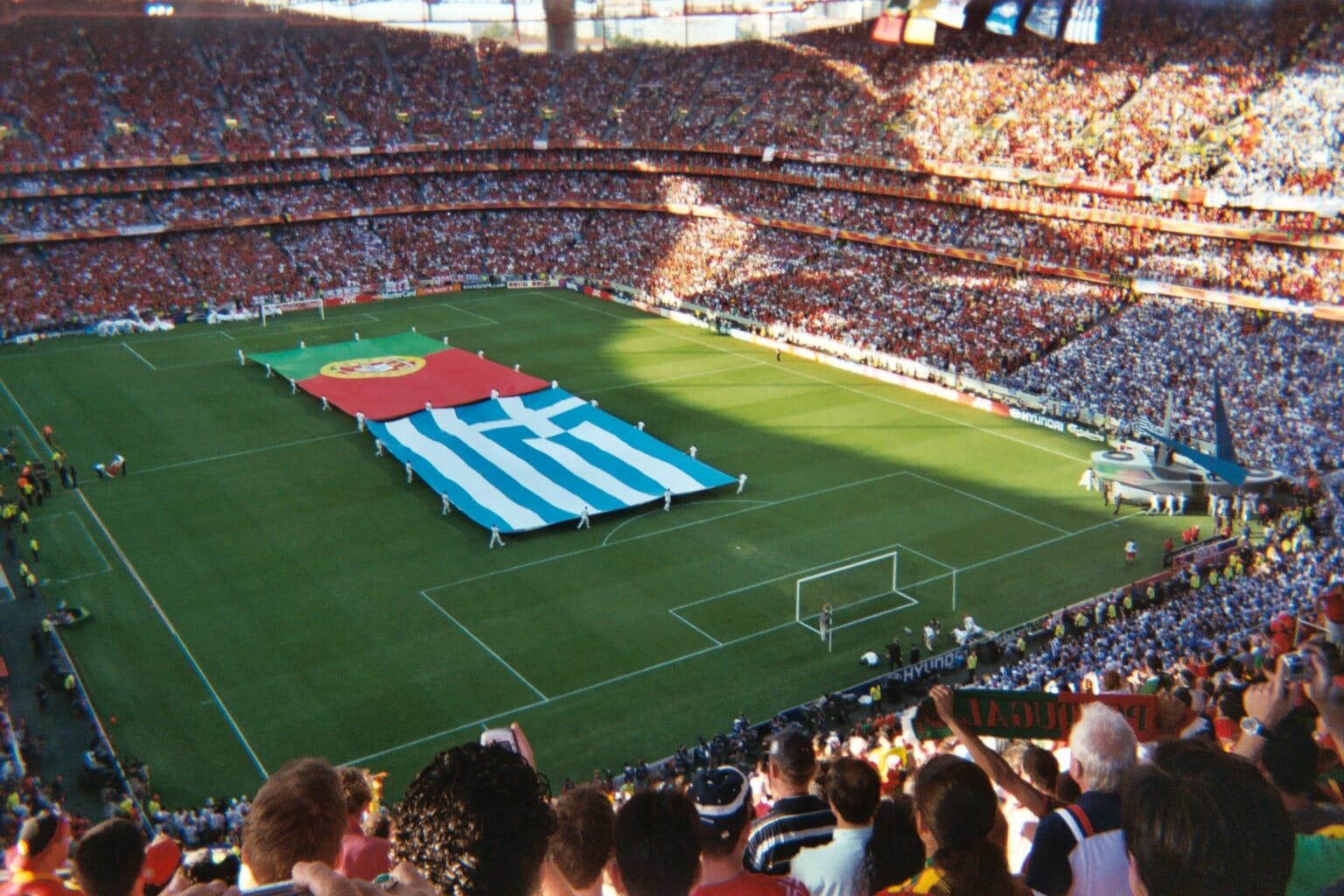
The Greek miracle at Euro 2004 | An imperfect story of identity
Discipline
Event
Date
Country
Length
Winner-Podium
Other protagonists
On the eve of Euro 2004 ’s football tournament, Greece was a divided Country, on the edge of an economic crisis. Greek football, as Greek people, had never been tight-knit, due to ethnic and cultural differences. Except for those 23 days of summer madness, when something unpredictable bound together the national team and every Greek who followed that football adventure
No man is an island. John Donne was probably right, although the geographical composition of Greece, with more than 6000 islands, suggests a fragmentation that corresponds to its human society. Every zone and every Greek football team has a different identity, with a rivalry that evokes ancient conflicts. The capital, Athens, still has a powerful influence on sports, also due to its Olympic tradition. Before Euro 2004, bookmakers placed Greece in the second-last position according to the odds. The group stage was clear: with the strong host team, Portugal, the Spanish battleship, and Russia, Greece’s fate seemed clear. Despite all the probabilities, Greece fought with unexpected strength, ending first in the group, knocking out Spain by a goal difference, and reaching the quarter-finals. It was only the beginning of the dream.
An imperfect identity
In command of the Greek pirate ship, as it was nicknamed, there wasn’t a Greek. A German coach was selected to be the mentor of Greece: Otto Rehhagel, a master of tactics. His approach was well-defined. He built Greece to be functional, not to be pretty. A solid, muscular team, defensive, strong in free kicks and aerial game, with well-rehearsed teamwork and a spirit of sacrifice. The Rehhagel recipe.
The media were not so enthusiastic about this game style. They considered it ugly, boring to watch, “a tear that runs down the face of the good game” (The Daily Telegraph). But as Rehhagel explained, his strategy was purely based on the “material” he had available. Georgios Karagounis, Traianos Dellas, Theodoros Zagorakis, Angelos Charisteas: they were the best he had. Only teamwork and a strict tactical mentality could make up for that. Greece knocked out talented France and then the highest-rated team, the Czech Republic, with an extra time silver goal by Traianos Dellas that launched Greece in the final of Euro 2004.
Strength in numbers
The final with Portugal at Euro 2004 could be the revenge after the Greek victory in the very first match of the tournament. But even with that, Greece was still an underdog. Playing at home is a big incentive for the Lusitanians.
The key for Rehhagel was the same: accepting to suffer in defense, to strike at the earliest opportunity, using fast breaks. So it happened. Charisteas scored with a lethal header and Greece entrenched itself for the remaining time. It’s a breaking schemes scenario, that no one could have predicted. Greece was the European champion. The Greeks left their divisions aside for those 23 days of football. An imperfect yet moving fairy tale that never repeated itself.
Tag
Buy a ☕ for Hypercritic









